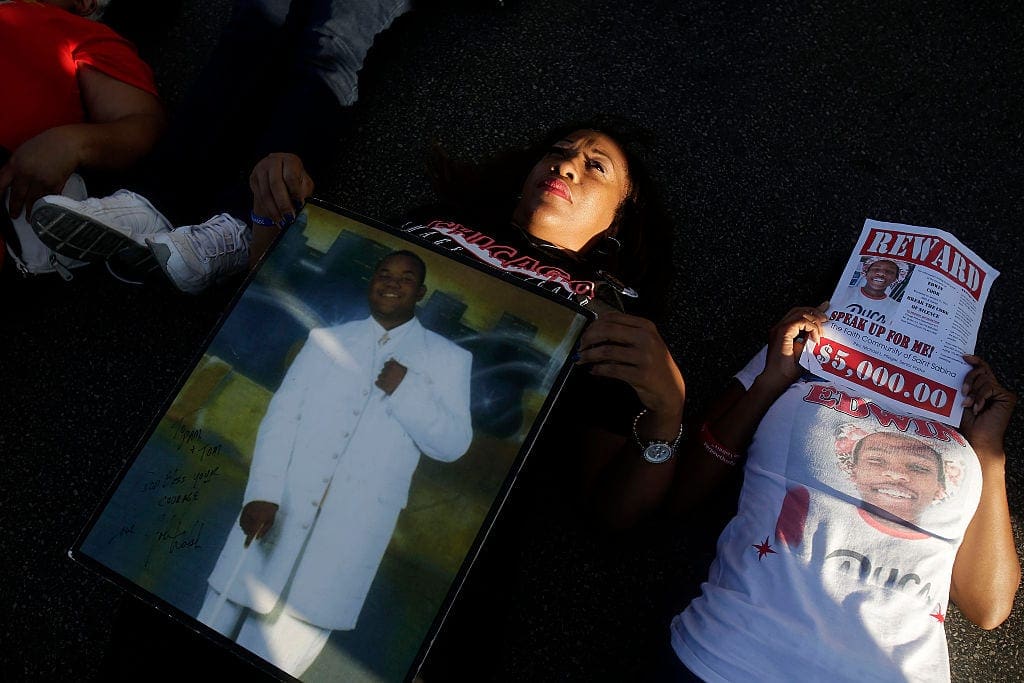While most countries have licensing and regulation systems in place for firearms, the United States lacks measures like a national registration, and 30 states allow handguns to be owned without a license or permit.
“The U.S. government is prioritizing gun ownership over basic human rights. While many solutions have been offered, there has been a stunning lack of political will to save lives,” said Margaret Huang, executive director of Amnesty International USA. “Despite the huge number of guns in circulation and the sheer numbers of people killed by guns each year, there is a shocking lack of federal regulations that could save thousands.”
Acknowledging the decades of work by impacted communities and activists, the Amnesty International report aims to support those efforts by placing the problem of gun violence in the framework of universally recognized human rights, and offering solutions within that framework that the U.S. should adopt to address the crisis.
“The ability to go about your daily life in security and dignity, free from fear, is at the very cornerstone of human rights,” said Huang. “No one’s human rights can be considered secure as long as our leaders fail to do anything about gun violence.”
In 2016 – the last year stats were available – over 38,000 people were killed and 116,000 suffered non-fatal injuries due to firearms in the United States. The report examines the ways in which gun violence affects communities of color, where gun violence is the leading cause of death for men and boys between the ages of 15 and 34, who are more than 10 times more likely to be killed by a gun than their white counterparts. Women facing domestic violence and children are also disproportionately affected.
While the report offers many different recommendations for each of the focus areas, the overarching call is for national laws that would eliminate the current inadequate and arbitrary patchwork of state laws that leave people in some states more vulnerable to gun violence than others. Among the recommendations are:
- Comprehensive background checks
- National regulations for licensing and registering firearms, and required training for gun ownership
- Ban on semi-automatic assault rifles and other military-grade weapons
- Investment in evidence-based community violence reduction and prevention programs
- Mandatory safe-storage laws
The report notes that while mass shootings have profound emotional and psychological effects and could be prevented by banning assault rifles and high-capacity firearms, such mass events only account for less than one percent of gun deaths.
More common and less publicized are individual incidents that pervade everyday life in communities across the country. To that end, the report shares individual stories of people affected by gun violence.
“You have to understand, our children are suffering,” said Pam Bosley, a Chicago mother whose son Terrell was killed by gun violence in a still-unsolved crime in 2006, and who spoke with Amnesty International for the report. “We need social services and counseling for youth. How can we expect them to survive and excel in this climate? When a child is killed – at most-the school will bring in a counselor for one day. If they treated us like Sandy Hook – things would be different. When lives were taken in that community, they brought in counselors for a year to work with the kids – our kids go through this every day. Our community is not valued by America. They don’t feel like we are worth the counseling or support.”
The report also explores the consequences for the thousands of people who survive gun violence. On average, more than 317 people are shot every day and survive – at least long enough to get to the hospital. The mental, physical, and financial consequences of their injuries shape their lives forever. This is a public health crisis of astonishing proportion – with remarkably little government response, given the life-long effects on many survivors.
Dr. Thomas Scalea, director of the R. Adams Cowley Shock Trauma Center in Baltimore, spoke to Amnesty International about a patient who exemplifies the struggles faced by survivors: “I have one guy [who] had multiple shots. I’ve operated on him maybe 15 or 20 times in 18 months, because he had a lot of problems, he was really sick. But I got him through it and we closed his colostomy and he is fixed and he is known as a ‘great save.’ Except…he was also shot in the arm, and has severe nerve damage and he made a living moving stuff, picking things up. You need two arms to pick things up, so he is disabled and he cannot work…. And that’s it, there is no re-education or training. And in order to get disability you have to be able to negotiate the health care system, and that’s hard enough for me to do, so how do you think it’s going to work out for him?”
In addition to working to implement the federal and local recommendations made in the report, Amnesty International will work with local partners at the state level, starting with initiatives in Ohio, Illinois, and Michigan. In Illinois, Amnesty International members will urge the governor to pass the Combatting Illegal Gun Trafficking Act that will help stop the flow of illegally trafficked guns and stop gun dealers from opening next to schools and daycares. In Ohio, activists will work to stop a bill that would make violent confrontations with firearms more likely to occur. A third campaign in Michigan aims to pass a law allowing family members to take steps to prevent loved ones from harming themselves or others.
Further campaign efforts will call on city and state governments to invest in communities by fully funding community-based solutions programs, proven to be the most effective urban gun violence reduction interventions in the U.S.

